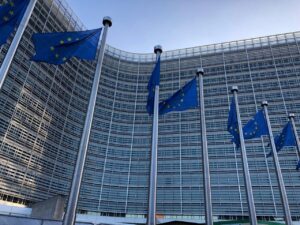The economic impact of Nord Stream 2 (NS2) on Central and Eastern Europe was broadly assessed during a debate organised by Central Europe Energy Partners (CEEP) and the European Policy Centre (EPC), in Brussels, 18th of October.
Two reports served as the baseline for the discussion : “The impact of the construction of the Nord Stream II gas pipeline on Gas Prices and Competition” an independent research prepared by Regional Centre for Energy Policy Research (REKK), Hungary; and “Impacts of Nord Stream II on natural gas markets” authored by Energy Research&Scenarios (EWI) and commissioned by Nord Stream 2. Despite similar methodology, the two studies present different conclusions – REKK predicts an increase in gas prices related to NS2 construction, while EWI assumes, what is not a surprise given the contracting company, that NS2 will decrease the prices.
The Head of Security of Supply Unit of DG Energy, Stefan Moser, presented a negative perspective on the project. He highlighted that NS2 contradicts the logic of diversification and is not in line with the policy objectives of the EU. Mr. Moser spoke about NS2 as of a project which undermines the energy security and would potentially increase the energy costs for consumers. He emphasised that projected pipelines should be based on a transparent EU legal framework. In this regard, both, the announced amendment of the EU law (the extension of the interconnector definition within the Gas Directive) and possible negotiation with Russia of an intergovernmental agreement are complementary efforts. Eventually, the EC wants to settle a coherent regime for all import pipelines. Even though NS2 is not in line with the EU policy objectives, the EC does not have any legal instruments to veto it. Mr. Moser warned that NS2 as a single piece of infrastructure may trigger a negative dynamic on the flows of gas in Europe, which will affect particularly CEE. Furthermore, he underlined the importance of Ukraine as a partner of the EU in the gas sector, especially by maintaining its gas transit role.
Peter Kotek (senior research associate, REKK) elaborated on the results of REKK’s study which show the negative impact of NS2 on the welfare and the economy of CEE. His key message was that NS2 will result in the rerouting of the gas that is transiting the Ukrainian pipelines now (including long-term gas contracts) what will result in increased congestion on West – East interconnections and will hence result in increased prices. NS2 will restrict internal trade in the EU (access of Central South-Eastern Europe to Western markets will be curtailed) and thus harm the market functioning by making prices diverge even more between the two regions. He also questioned several assumptions of EWI’s study. Particularly, he pointed out at the introduction of too many changes into the basic reference scenario (mostly due to EWI’s assumption of massive gas infrastructure expansion). As a result, the study demonstrates the market impact of other new pieces of gas infrastructure.
The second study, presented by Florian Weiser (research associate, EWI)- differs significantly from REKK’s one on several assumptions, including the limitation of Ukrainian transport route to 30 bcm and the construction of additional infrastructure (the implementation of all PCIs and several other projects) which avert bottlenecking of West-East interconnectors. The study also assumes that if NS2 is not built, Russia will not deliver more than 30bcm of gas through Ukraine, and the supply gap will be covered by more expensive LNG, leading to a price increase. The conclusions of the EWI study were several times challenged by other speakers and the audience.
The strategy director of EPSO-G, Lithuania, Nemunas Bikinius, stressed the importance of well-connected markets which result in price convergence and the fact that Russia gas supplies are priced contrary to geographical proximity – its neighbouring countries pay more for gas than more geographically remote markets, enjoying higher diversification of supply. He warned that the construction of NS2 may lead to the defragmentation of the energy market which will undermine recent achievements.
During the discussion, many other aspects of NS2 were raised, including its negative impact on energy security, coherence of EU energy policy, possible LNG imports to Europe and new gas infrastructure in the region. The debate gathered more than 100 guests, members of national permanent representations, EU institutions, business representatives, policy makers and journalists.








